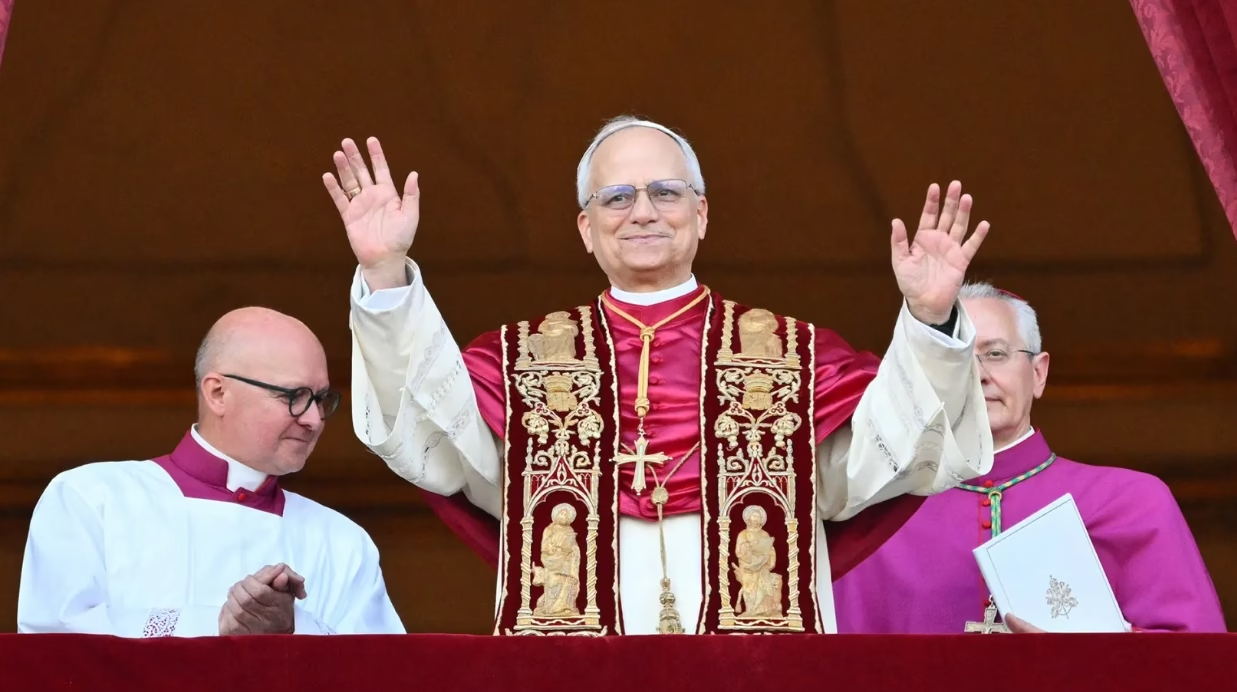VATICAN CITY, May 8 – In a stunning conclave decision that reshapes centuries of Catholic tradition, the College of Cardinals today elected Cardinal Robert Prevost, a soft-spoken missionary from Chicago, as the first American pope in the Church’s 2,000-year history. Taking the name Leo XIV, the 69-year-old former bishop of Chiclayo, Peru, emerged as a compromise candidate after five days of intense voting, succeeding the late Pope Francis and inheriting leadership of the world’s 1.4 billion Catholics.
A Moment of History in St. Peter’s Square
At 6:42 p.m. local time, white smoke curled from the Sistine Chapel chimney, sending a wave of anticipation through the rain-soaked crowd in St. Peter’s Square. The tension broke when Cardinal Protodeacon [Name] stepped onto the loggia and proclaimed the words Catholics worldwide had awaited: “Habemus Papam!”
The new pontiff, dressed in a traditional red mozzetta over his white cassock—a sartorial contrast to Francis’ simpler style—appeared on the balcony to thunderous applause. Speaking first in fluent Italian, then Spanish, but notably not English, he offered a simple greeting: “Peace be with you all.”
An Unlikely Pontiff
Few had predicted Prevost’s rise. A dual U.S.-Peruvian citizen, he spent most of his career in rural Peruvian parishes before being named a cardinal just last year. His low media profile and reputation as a “listener, not a politician” (as one Vatican insider described him) made him an unexpected choice.
Yet his deep ties to Latin America, where he served for over two decades, and his leadership role in the Vatican’s powerful bishops’ office positioned him as a bridge between reformists and traditionalists. “He’s not Francis, but he’s not a reactionary either,” said Vatican analyst Austen Ivereigh. “This is a pastoral pick, not an ideological one.”
Global Reactions: Pride and Skepticism
- U.S. President Donald Trump hailed the election as “a Great Honor for our Country” on Truth Social, adding he looked forward to a “very meaningful” meeting.
- Peruvian President Dina Boluarte praised Leo XIV’s legacy of serving the poor, calling him “a son of Peru in spirit.”
- SNAP, the U.S. abuse survivors’ network, voiced alarm, citing unresolved allegations that Prevost had mishandled abuse cases in Chicago and Peru. The group demanded immediate action, declaring: “You can end the crisis—will you?”
In Chicago, where Prevost studied at Catholic Theological Union, faculty and clergy erupted in cheers. “An explosion of joy,” said Sister Barbara Reid, the school’s president, recalling him as “brilliant but compassionate—a leader who hears the cry of the poor.”
The Shadow of Francis
Leo XIV inherits a Church at a crossroads. While praising his predecessor’s push for inclusivity, he faces pressure to either extend Francis’ reforms—on women’s roles, LGBTQ outreach, and clerical accountability—or steer toward tradition. His choice of the name Leo, evoking Leo XIII’s social justice legacy, hints at continuity, but his conservative liturgical style (seen in his ornate vestments) signals complexity.
“He must unite a fractured Church,” noted Cardinal Wilfrid Napier of South Africa. “The Global South trusts him. The question is: Will the West?”
What Comes Next?
- Inauguration Mass: Expected within days, with global leaders attending.
- Key tests: Handling the abuse crisis, Vatican financial reforms, and dialogue with China.
- Language watch: Will he address Americans in English? His silence today sparked debate.
As pilgrims dispersed into the Roman night, one question lingered: Can a humble missionary from Chicago heal a divided Church? For now, the world has a new pope—and a surprise chapter in Catholic history has begun.

Leave a Reply